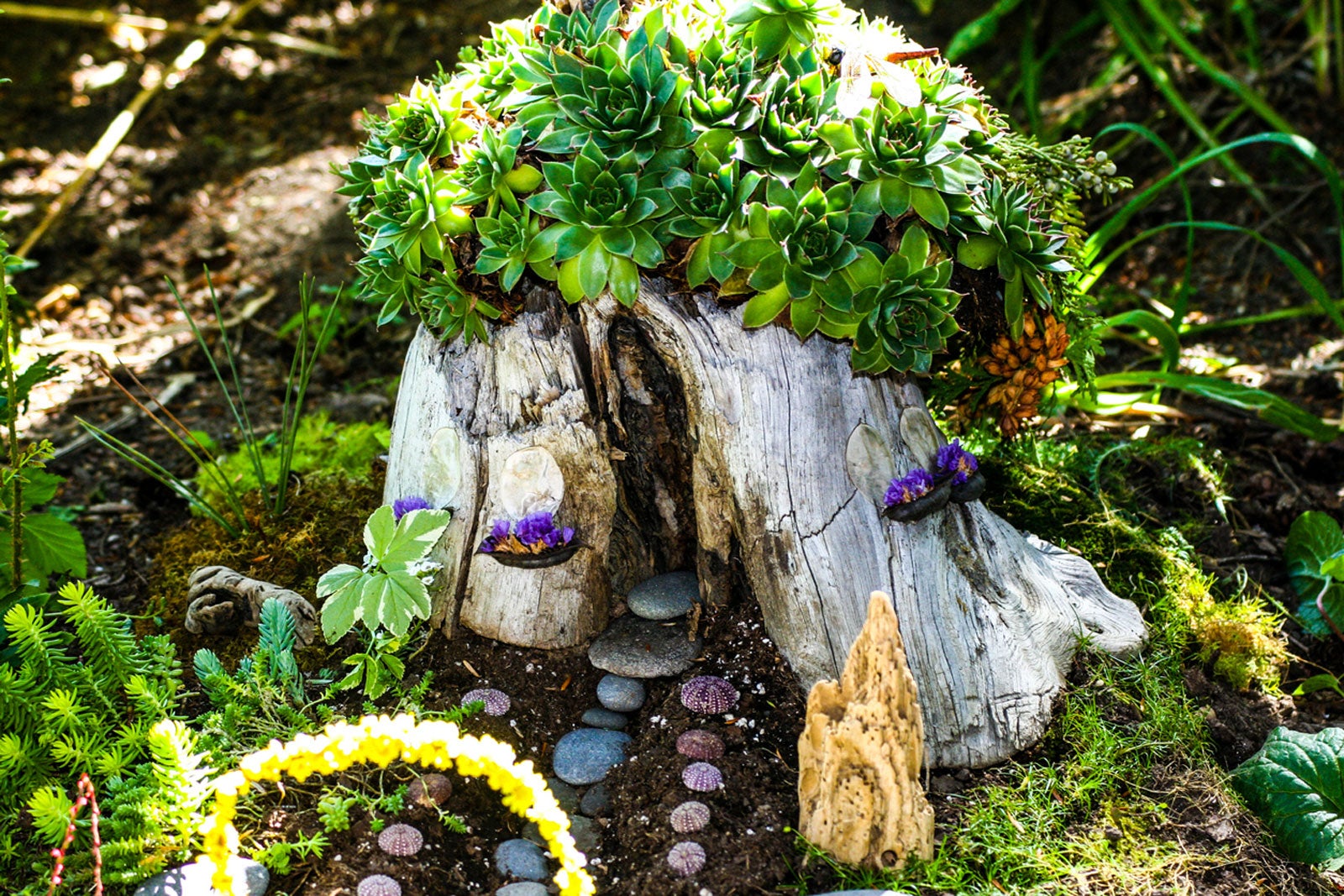Succulent Fairy Garden Ideas – Tips On Planting Succulents In A Fairy Garden
A sweet fairy garden is magical for children of all ages, and succulents make it a perfect little adventure.


Designing Mini Succulent Gardens: How To Make A Fairy Garden With Succulents
Fairy gardens give us a way of expressing ourselves while releasing our inner child. Even adults can get inspired by a fairy garden. Many of the ideas involve a small area of the outdoor garden, but the notion can also translate to container and indoor plantings.
Mini succulent gardens are a fun, easy, and low maintenance way of developing a fairy garden. A fairy garden with succulents is also an innovative and creative way to introduce plants and their care to children or beginner gardeners.
Succulent Fairy Garden Ideas
Remember reading a favorite story book as a child and the magical feeling that swirled around you as you imagined strange new worlds and fantastic beings? You can get a smaller version of that sentiment by using inspired succulent fairy garden ideas. Succulents in a fairy garden should be as inventive as your imagination. The whole idea is to create a mini world that is based on your vision.
Think back to your childhood, then relax and have fun with a succulent fairy garden. There are no rules, so you can't do anything wrong; just remember to combine plants with the same cultivation needs in the concept.
Start with choosing your container. It could be a dish garden, terrarium, or a quaint basket model. Maybe even a tiered garden or one in a teacup.
Use what you have on hand to express yourself and create a tiny world that evokes storybook concepts. Now comes the fun part…selecting plants that are playful with fun personality and then decorating the garden with pieces that complete the story.
Succulents in a Fairy Garden
The succulents in a fairy garden should be miniature to complete the tale and bring magic into your garden idea. Avoid succulents that will become too large and try to stick with plants that will not overtake the garden. This is so you still have room for the decorative touches that captivate and enchant. Some cute selections include:
Sign up for the Gardening Know How newsletter today and receive a free copy of our e-book "How to Grow Delicious Tomatoes".
- Sedum – There are so many colors and varieties of sedum from which to choose, plus they look like miniature roses.
- Burro's tail – A funny, trailing succulent with opalescent green color, burro’s tail makes an interesting addition to fairy gardens.
- Jade plant – It will eventually get big but is slow growing, and young jade plants make perfect stand-ins for tiny trees.
- Panda plant – Fuzzy and almost white, panda plant adds softness and a unique feel to the fairy dish garden.
- Hens and chicks – The name says it all. Hens and chicks are filled with fanciful delight.
- Echeveria – Like sedum, there are many sizes and varieties of echeveria, with different tones etched along the leaves.
- Lithops – Lithops look a bit like living rocks but bloom and have unique hues.
A few other types of plants available for mini succulent gardens include:
You have your container and your plants set. Now you want to introduce items that complete the dream. There are many sellers of fairy décor, or you can make your own. You can also use dollhouse items. Go to your local craft or thrift store and see what tiny items you can find to finish your fairyland.
You may include things such as furniture, bird houses, mushrooms, trees, figurines or anything else that captivates the imagination. This is the truly fun part. You could retell a classic or create one of your own; this is where your creative imagination and inner child can really shine.

Bonnie Grant is a professional landscaper with a Certification in Urban Gardening. She has been gardening and writing for 15 years. A former professional chef, she has a passion for edible landscaping.